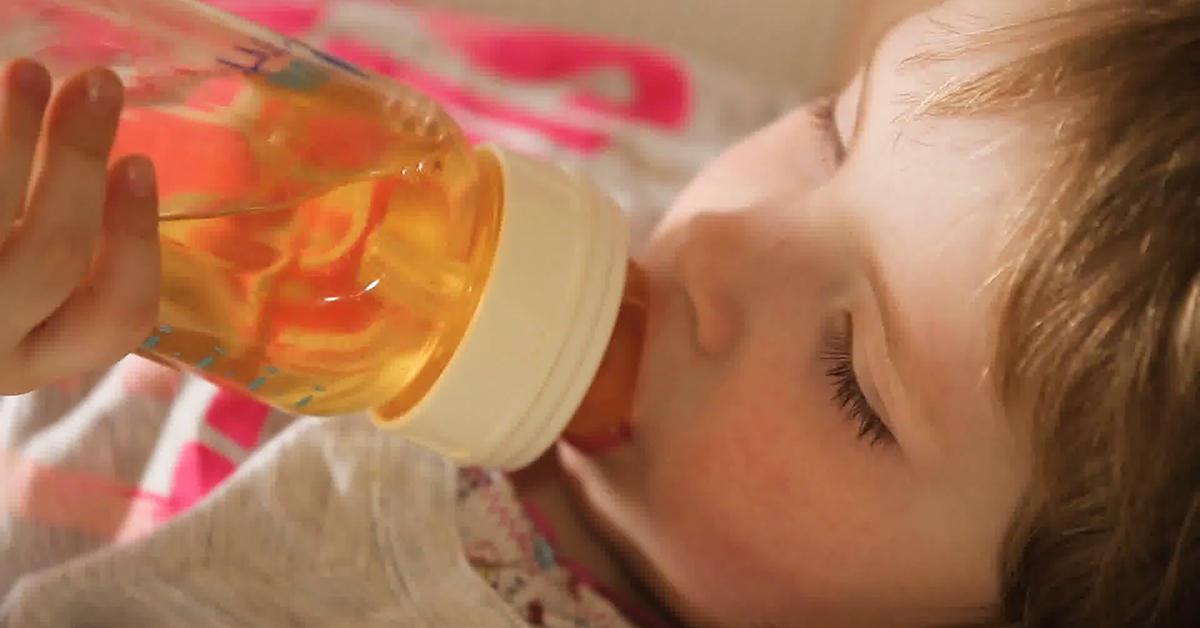What Every Parent Should Know About Baby Bottle Tooth Decay

Okay…bedtime can be a battle, and when a pacifier won’t do the trick, a warm bottle of milk can feel like the perfect solution. If it helps your baby fall asleep faster, it might seem like a small win at the end of a long day, right? But what if this comforting habit is quietly hurting their tiny teeth?
Baby bottle tooth decay is one of the most common dental issues in infants and toddlers. It is not always easy to spot, and if left untreated, it can lead to cavities, pain, and even speech problems and permanent teeth damage later on.
The good news is that baby bottle tooth decay is entirely preventable—and prevention starts with understanding. Knowing what causes it and how it develops puts you a step closer to protecting your child’s teeth.
So, for all the parents out there navigating bottles, bedtimes, and everything in between, here’s what you need to know to keep those tiny teeth safe.
What Is Baby Bottle Tooth Decay and What Causes It?
Baby bottle tooth decay, also known as early childhood caries, is a condition that affects infants and toddlers. What often surprises parents about this dental issue is that it can begin as soon as a baby’s first tooth comes in.
The decay often starts in the upper front teeth but can spread if not addressed early. What’s tricky about this type of decay is that it doesn’t always show obvious signs at first. It can begin as light brown or white spots near the gumline, which are easy to miss.
As the condition worsens, you may notice more severe symptoms like gum irritation, occasional bleeding, persistent bad breath, or even a mild fever, especially if an infection sets in.
But What Exactly Causes This Condition in the First Place?
Early childhood caries usually starts with prolonged or frequent bottle-feeding of sugary drinks, which happens when babies are given milk, formula, or juice at bedtime or during naps.
When these sugary liquids stay in the mouth for extended periods, they create the perfect environment for bacteria to grow. Then these bacteria feed on the sugars and produce acids that attack the enamel, eventually leading to decay.
Most parents might ask at this point whether breast milk can also cause baby bottle tooth decay. The short answer is yes. Even natural sugars found in breast milk can contribute to the problem if oral hygiene isn’t maintained.
How to Prevent Baby Bottle Tooth Decay
As a parent, there’s so much to think about when it comes to keeping your baby’s teeth in shape. But with a few simple habits, you can stay ahead of tooth decay and give your little one a healthy start. Here’s how:
1. Avoid Putting Your Baby to Bed With a Bottle in Their Mouth
If your baby needs comfort at bedtime, try offering a pacifier. Once your baby is old enough to start learning new habits, begin transitioning them to a sippy cup instead of a bottle. This way, you’ll reduce the chances of them falling asleep with a bottle in their mouth.
2. Clean Your Baby’s Mouth Daily
Gently wiping your baby’s gums with a soft, damp cloth after every feeding helps remove sugars and any remaining milk. When their first tooth pops in, you can switch to a soft-bristle toothbrush and a rice-sized amount of fluoride toothpaste.
3. Offer Water Between Meals
Once your baby starts eating solid foods, you can give them a few sips of water after each meal. This can help rinse away sugars and keep their mouth clean between feedings.
4. Visit the Dentist by Their First Birthday
Many parents assume that they can wait until all the baby’s teeth are in, but the truth is that you should start their dentist visits by their first birthday, max. A pediatric dentist from the best dental clinic in Dubai can spot early signs of tooth decay and guide you on age-appropriate care.
5. Watch Their Diet as They Grow
As your little one starts exploring new flavors, it’s the perfect time to guide their taste buds in a healthy direction. Try to limit sugary snacks, juices, and processed treats. Instead, focus on fruits, veggies, dairy, and lean proteins that support both dental and overall health.
Got your braces removed? You can always opt for invisible braces in Dubai from a professional dental clinic in Dubai.
